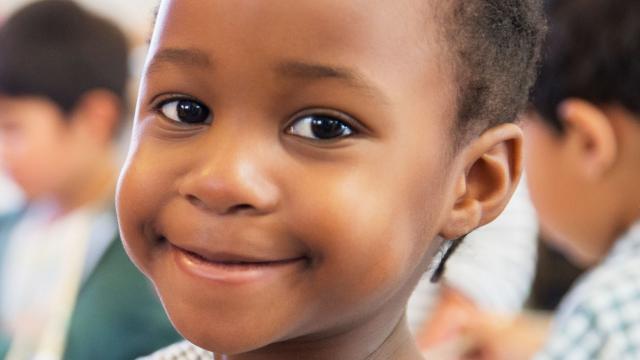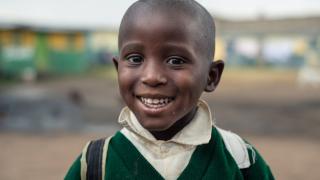
Jasiri Souls School/Little Souls Learning Centre
Founded in 2013 as "Little Souls", rebranded to "Jasiri Souls Schools" in 2022, this inclusive establishment has evolved into a beacon of support for neurodivergent children, currently enhancing 64 young lives amidst its diverse student population. Their ethos celebrates a holistic learning sphere, enriched by Waldorf methods, that benefits all learners, with a strong emphasis on inclusivity for those with "invisible" disabilities. The school's dedicated learning support department with trained coordinators ensures neurodiverse students thrive in integrated classroom settings. Their commitment extends beyond the classroom with termly workshops for teachers, caregivers and parents and public events to foster wider community awareness. Remarkably, over 85% of parents who participate in their programmes shared that they have witnessed significant improvements after 6 weeks of participation.
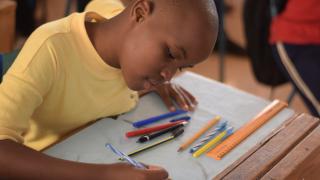
Kisumu Medical and Education Trust (KMET)
Nawirisha Watoto is dedicated to enriching early childhood experiences through play-based learning in western Kenya, targeting children aged 0-6, including those with neurodiversity or whose mothers are incarcerated. The project, building on previous work in Siaya, is recognized for its alignment with local government strategies to ensure sustainable and holistic nurturing care. By engaging with partners and communities, Nawirisha Watoto is committed to helping every child reach their full developmental potential. Esteemed publications like "PLOS Global Public Health" and the WHO's "Nurturing Care Framework progress report" have acknowledged Smart Start Siaya's contributions to early childhood and nurturing care, particularly its effective community-based approach. Additionally, "Spring Impact" cites it as a groundbreaking multi-sectoral model steered by local leadership.

Learn To Play
Learn To Play champions play-based early childhood education in Africa, equipping "Mamapreneurs" to lead playgroups for children aged 2-5 ensuring they are school ready by the age of five and lifting all Mamapreneurs above the poverty line . LTP’s play-based curriculum focuses on social and emotional development and mindful play to develop key school readiness skills. Their Parent Playbox combines training and a resource pack to provide parents the knowledge and confidence to deliver a year's worth of weekly home-based activities, fostering strong family bonds and early development for children aged 0-6. This innovative approach has already positively affected over 200 children and 150 caregivers in Botswana and South Africa, enhancing parental engagement and father involvement.
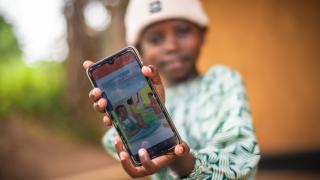
NABU
NABU is building a brighter future for children all around the world with a mission to solve the global literacy crisis by 2030. Their free low-bandwidth mobile app and NABU Web contains hundreds of authentic and locally inspired mother tongue stories for children aged 0-12. Beyond providing digital and print resources, they cultivate a reading culture through community, caregiver and teacher training. Their efforts have reached 342,718 users in Kenya, with 203 Literacy Champions deepening their community engagement. NABU has also championed local talent, enabling 150 authors and illustrators to create 280 culturally relevant titles, enriching children's learning with diverse Kenyan narratives.
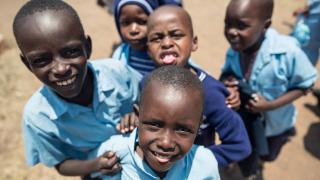
Pursue
Pursue is making strides in Kakamega county, Kenya, by enriching the educational landscape for children aged 0-6. Its two-pronged approach encompasses the Schools Development Program and the Model Schools initiative. The former enhances teacher and school leader capacities in quality education and management, while the latter creates centers of excellence for peer institutions to emulate best practices in early childhood development. The school has witnessed tremendous growth since 2019 working with 200 teachers in 40 schools representing over 4,000 students. Their impact in 2022 has been profound: partner schools doubled structured lesson planning and Model School Early Years students outpaced others by 40%. There was a 53% average increase in teacher classroom practice throughout 2022, with 70% of these being ECED teachers. Moreover, Pursue's students demonstrated a 75% greater proficiency in literacy and numeracy over non-participants. Their alumni-led professional development and parental engagement forums have catalyzed better lesson quality and stronger parental support, showcasing Pursue's comprehensive and successful educational model.
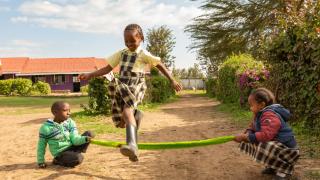
The Sunflower Trust
Sunflower Trust stands out in Nairobi's Kibera Slums, offering unparalleled early childhood education to children aged 0-6. The programme which has been implemented since 2018, aligns with the five key components of Nurturing Care Framework and champions a holistic educational approach, enhancing cognitive, physical, emotional, and social facets. Since inception, they've witnessed a 300% rise in enrollment, annually supporting 75 children who consistently excel in primary school. Sunflower Trust also prioritizes parental engagement, with a significant focus on empowering mothers of girls. With an excellent teacher-student ratio and regular LEAD assessments, they're committed to fostering future leaders.
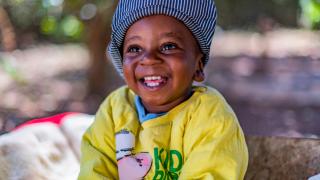
Tiny Totos
Tiny Totos, a Kenyan social enterprise, is transforming the informal care economy and life for women and children. With a dynamic toolkit consisting of business and childcare training, access to technology, capital and network, informal daycare providers and parents earn more. Improved care standards allow children to meet their full potential. Leveraging their mobile apps and M&E platforms, TTK’s data-driven approach provides real time insights to continuously improve impact. >50,000 children and women access TTK’s network to date (Kenya, Ethiopia and Somalia), TTK’s growing reputation as an innovator in market-based childcare has won awards and collaboration with MIT, Government of Rwanda and City of Addis, Mercy Corps, UNICEF, and more. TTK’s vision: Creating Africa's largest network of affordable childcare, helping 1m women and children by 2030.

